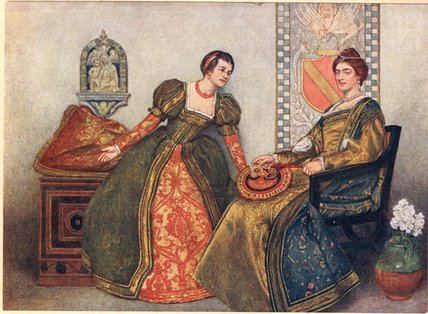Shakespeare is the only author schools specifically have included in their curriculum. Is this right? Should we keep reading Shakespeare? The answer is yes. Yes, but why? The reasons are countless.
Reading Shakespeare takes a lot of effort–especially for the first time, as it’s not written in the English that we speak today. My first time reading Shakespeare was very teacher-led. The whole play was read as a class so as to ensure each student’s understanding of the material. It was a tedious process, just as reading any other Shakespeare piece is, but the content is well worth the effort it takes to obtain it. Shakespeare can always find a completely accurate way to describe concepts–like love and friendship–still relevant today. Any human, even now, can relate to things Shakespeare’s work describes, which is amazing, considering it was written around 400 years ago. You might ask, though: “Why Shakespeare? Why can’t we just read things that we can just as equally relate to that we can already understand without having to dig too deep?” Yes, of course, we can; nothing is stopping us, and I’m not saying we should drop everything and only read Shakespeare, but a lot of these writers are getting a lot of what they’re saying from Shakespeare. So much modern literature, modern TV, modern pop culture, makes references to Shakespeare’s words, works, and views, so why not start at the source and tough it out to get to what everyone is already talking about. Shakespeare’s work is timeless. There’s always a certain sentiment to knowing previous generations were able to enjoy the same literature and future generations will do the same. Teaching Shakespeare in the classroom preserves this. Shakespeare is an icon, therefore it’s important to give students at least some experience with such an influential character to literature today.
